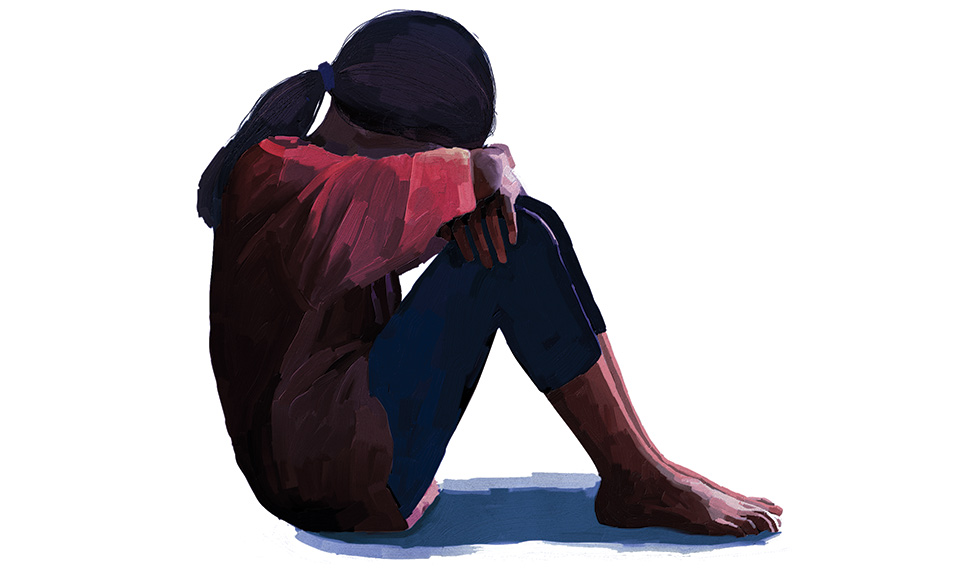The case of the ten-year-old rape survivor in Chandigarh is only one among several recent ones where girls and women have turned to courts to seek abortion. But, why do such cases end up before courts?
The Medical Termination of Pregnancy (MTP) Act, 1971, does not allow termination beyond 20 weeks, unless there is a risk to the woman’s life. In cases where the foetus is detected with abnormalities, or if the pregnancy has resulted from rape, women are compelled to go to courts. In some cases, the courts have allowed abortion.
The legal option is most often a woman’s last resort. But, there are several other issues involving the abortion process in our country. Lack of early access to safe abortion is one, say medical experts. When performed by skilled providers using correct medical techniques and drugs, and under hygienic conditions, abortion is safe. But, owing to several hindrances, women often end up visiting quacks and illegal clinics, resulting in medical complications, and, at times, even death, says advocate Sneha Mukherjee, who has handled many pleas for abortion in the Supreme Court.
According to the health management information system of the Union ministry of health and family welfare, 7,26,993 abortions took place in India between April 2016 and April 2017. But, experts say the actual number is much higher. Estimates by Delhi-based Ipas Development Foundation (IDF), an organisation that works on safe abortion services, suggest that ten women die every day because of unsafe abortions in India. Eight per cent of maternal mortality is due to unsafe abortions, according to IDF.
“We just do not have enough health workers in the country, especially in rural areas, to provide safe abortions,” says Mumbai-based Dr Atul Ganatra, former chairman of MTP committee, Federation of Obstetric and Gynaecological Societies of India. Also, there is a lot of stigma when it comes to unmarried girls and women. “If a 15-year-old is pregnant, she will hesitate to tell her parents, or go to a primary health care centre. Often, crucial time is lost in the process.” The 20-week limit, he says, needs to be raised because in many cases, foetal anomalies, especially those related to the heart, are detected after 20 weeks.
The change in the age of consent, from 16 years to 18 years (regardless of marriage), as defined in the Protection of Children from Sexual Offences Act, 2012, has compounded the problem. “If a young woman under 18 comes to me asking for abortion, I have to inform the police. This deters young women from going to safe abortion providers,” says Ganatra. Also, doctors say Pre-Conception and Pre-Natal Diagnostic Techniques Act, 1994, deters them from performing genuine abortions. Sex of the foetus can be determined at 13-15 weeks of gestation, and, hence, abortions, especially in the second trimester (beyond 12 weeks), could be seen as sex selective, they say.
Procedural delays also play the villain, as they did in the case of a 35-year-old destitute woman from Bihar who was denied abortion by the Supreme Court in May. The woman, who is HIV positive, had wanted to abort her pregnancy of 17 weeks, a fact that was communicated to the hospital in January. However, she was asked to get the consent of her father and brother, despite no such provision in the law, says noted lawyer Vrinda Grover, the counsel for the woman. Still, the hospital did not terminate the pregnancy, and the woman went to the Patna High Court, pleading that since she had been raped and was also HIV positive, she should be allowed to abort. By then, she had already crossed the 20-week ceiling, and her plea was rejected. She then approached the Supreme Court. But, by then she was 26 weeks pregnant, and it had become “risky” to abort the foetus. Her plea was turned down, but her counsel managed to get the government to pay her compensation. Not many women can afford to go to courts though, say lawyers and activists.
Many of these issues can be addressed through the proposed amendments to the MTP Act. For instance, one of the changes proposes to extend the gestational limit for abortion beyond 20 weeks, if foetal abnormalities are detected. “This amendment would mean that abortion is available at any time during pregnancy if the foetus is diagnosed with severe abnormalities, which require major medical interventions or are incompatible with life. These services will, however, be available only at medical colleges in the public sector and at other large private-sector institutions that may be accredited by the state for this purpose,” says Vinoj Manning, executive director, IDF.
The other change is to extend the gestation limit to 24 weeks for vulnerable women, including rape and incest survivors, single women (unmarried/divorced/widowed) and those with disabilities. It is also being proposed that the cadre of legal service providers for safe abortions during the first trimester (up to 12 weeks) be expanded to include medical practitioners with bachelor’s degree in ayurveda, siddha, unani and homoeopathy and those working in the public health sector.












